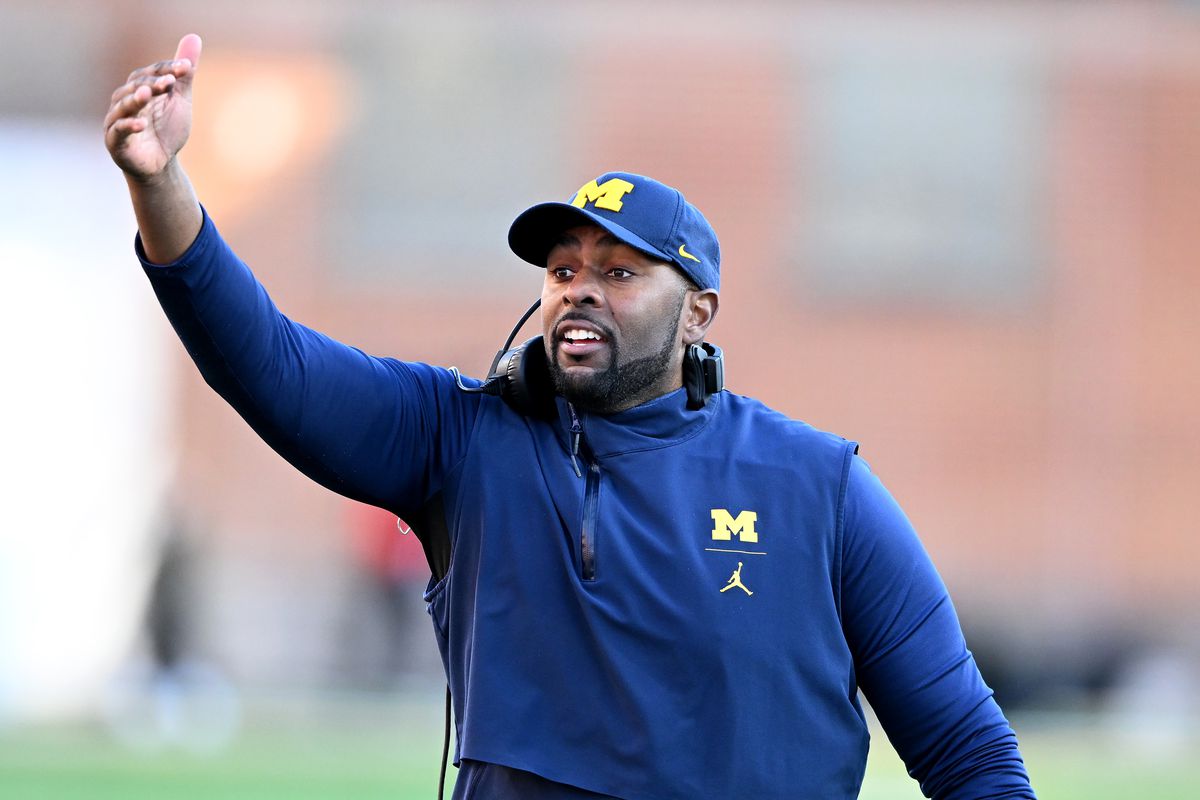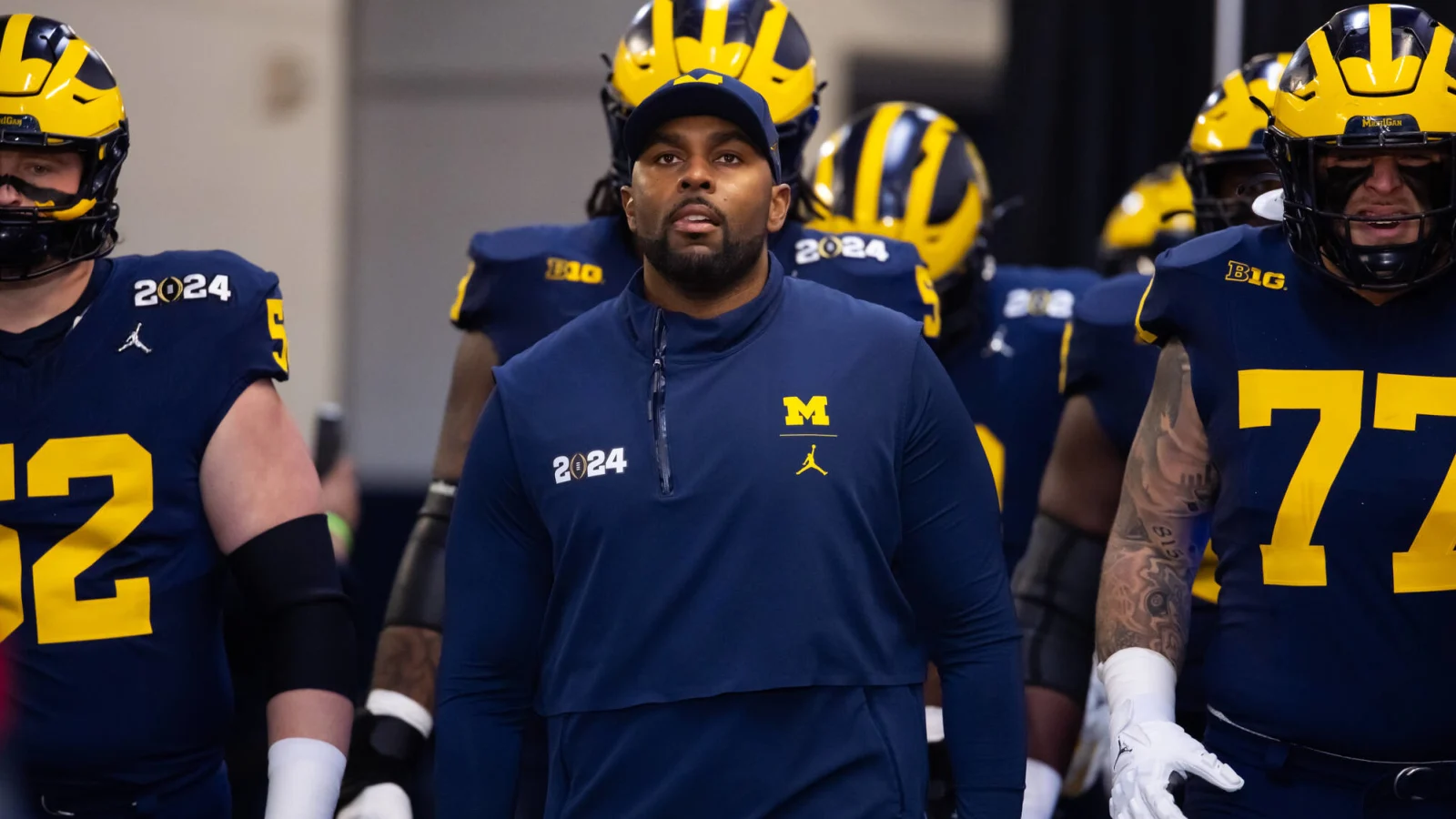A look back at how first-year head coaches have fared at Michigan
Sherrone Moore was named the 21st head coach of the Michigan Wolverines last week. Although Moore has the difficult job of becoming maybe Michigan’s greatest coach in the school’s 144-year history, Moore has already shown his worth.
With his back to the wall, he managed to keep Team 144’s hopes of winning a national championship alive by leading the Wolverines to victories over Penn State, Maryland, and Ohio State in 2023 while Jim Harbaugh was away.
Now that the hoopla over Moore’s hiring has subsided, attention should turn to Team 145. What realistic goals should Moore and this squad aim for? Is he able to build on the success that Jim Harbaugh has created over the past nine years? Moore should be off to a quick start if history is any guide.
In their first season in charge, five of the previous six Michigan coaches have won eight games or more, four have won nine or more, and two have won double digits. The first Michigan coach in the modern period (1969–present) to have a losing record in his first season was Rich Rodriguez.
To further understand what to expect from Moore, let’s examine how each head coach in this era has performed in their first season at Michigan.

Among the most significant teams in the history of the program are the Michigan Wolverines from 1969. After a humiliating 50-12 loss to Ohio State, Bump Elliott resigned, and Bo Schemebchler took control. Among other things, Schembechler notably invented the motto “Those who stay will be champions” and restored a spirit of belief and pride within the program.
The Wolverines had a rough 3-2 start to the season, but they finished the regular season with five straight victories, including a historic upset over Ohio State, which was rated #1. Although Michigan would lose to USC in the Rose Bowl, the Wolverines had bounced back and would consistently contend at the top of the Big Ten for the next 20 years, thanks to Schembechler’s leadership.
Gary Moeller, 9-3, 1990
Gary Moeller, who had previously been Michigan’s defensive coordinator in the 1970s, was the last offensive coordinator to be elevated to head coach before Sherrone Moore. fascinating profession.
When Bo took a job at Michigan as athletic director, Moeller inherited a machine from Schembechler. The powerful offensive tandem of Desmond Howard and Jon Vaughn was back for the Wolverines, who had just finished their third season with 10 or more wins in the previous five years.
Although the Wolverines had a 2-3 record in one-score games, they nevertheless finished in the top ten in 1990. The 1990 Michigan team was good but not outstanding, even though they defeated Ohio State for the third consecutive year—a trend that would prove to be unfavorable for Moeller.
Lloyd Car, 9-4, 1995
Following his public, inebriated incident in June 1995, defensive coordinator Lloyd Carr assumed leadership of the team. Carr put forth a great deal of effort to maintain the team’s people and culture while attempting to lay the groundwork for future national championships despite having little time to prepare.
In his debut season, Carr mixed equal parts Schembechler and Moeller. Like Moeller, Carr’s 3-3 record in one-score games hurt the team’s record, but the season’s biggest highlight is the victory over Ohio State, ranked No. 2.
Tshimanga Biakabutuka and a unique freshman class enabled Carr to lay the groundwork for Michigan’s first national championship since 1948, which came two years later.
Rich Rodriguez, 2008, 3–9.
After seven seasons at West Virginia, where he led the Mountaineers from 3-8 in his debut season to two field goals missed by Pat McAfee in the last week of play, Rich Rodriguez came to Michigan. In 2007, the Mountaineers were one game away from winning the BCS National Championship.
Rodriguez was expected to provide Michigan with an offensive explosion and was considered one of the spread offense’s primary creators. Rather, he caused more of an impact during one of the worst seasons ever for the show.
2008 saw the Wolverines go 3-9, which was both the first losing season since 1967 and the most losses in a single season in Michigan history. Only three of the nine losses came down to a single point, and the Toledo Rockets were the opponents in one of those games. Though Rodriguez’s teams did become better every year, there were never any thrilling wins over Ohio State to give him some time or goodwill. As a result, after a three-year record of 15–22, Rich Rod was fired.
2011: 11-2 for Brady Hoke
Reactions to Brady Hoke’s arrival at Michigan were mixed, but one thing that Hoke had going for him—and this was a total 180 from Rodriguez—was that he was likeable and the atmosphere was positive. With his ability to communicate with players, coaches, and the media, the headset-less wonder immediately won you over. Under Hoke, the team’s culture underwent a significant upheaval and was revitalized.
Michigan possessed a fantastic vibe, was explosive offensively, and was stifling defensively in Hoke’s debut season. This season was unique because it was the only time the Wolverines would defeat Ohio State between 2003 and 2021 and it was Michigan’s first double-digit win total since 2006—just the third Michigan
season to reach 11 or more wins since 1986.
The tormented Michigan supporter found some solace in the 2011 campaign. A season that brought promise for the program’s future for the first time since 2006 and an amazing opening night game in the Big House.
Hoke was gone after 2014, having failed to recapture the magic of this season and watching his win total decline in each of the following three seasons.
2015: 10-3 for Jim Harbaugh
The prodigal son returned in December 2014. Throughout his coaching career, Jim Harbaugh had been successful at every stop, so when he returned to Michigan, nobody had any doubts.
The highlights of Harbaugh’s first season included a three-game shutout streak, a goal-line stand against Minnesota, a dominating victory over Florida in the Citrus Bowl to secure win No. 10, a blowout loss to Ohio State, trouble with the snap, and an overpowering sense of optimism regarding the program’s future.
Michigan would come dangerously close to being great in 2016 and 2018, but they would never get over the hump under Harbaugh’s direction during the next few years. Following a disastrous low point in 2020, Harbaugh refocused the team and oversaw an incredible three-year run that includes three victories over Ohio State, three Big Ten titles, three trips to the College Football Playoffs, and one national championship.



